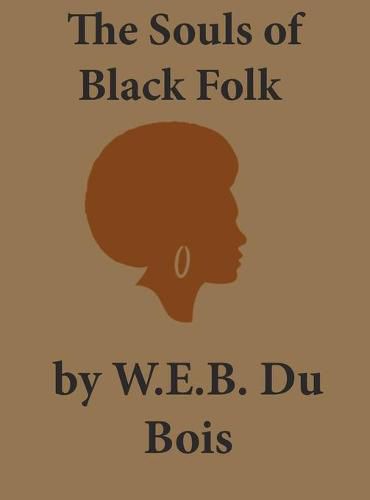Readings Newsletter
Become a Readings Member to make your shopping experience even easier.
Sign in or sign up for free!
You’re not far away from qualifying for FREE standard shipping within Australia
You’ve qualified for FREE standard shipping within Australia
The cart is loading…






This title is printed to order. This book may have been self-published. If so, we cannot guarantee the quality of the content. In the main most books will have gone through the editing process however some may not. We therefore suggest that you be aware of this before ordering this book. If in doubt check either the author or publisher’s details as we are unable to accept any returns unless they are faulty. Please contact us if you have any questions.
To develop this work, Du Bois drew from his own experiences as an African American in the American society. Outside of its notable relevance in African-American history, The Souls of Black Folk also holds an important place in social science as one of the early works in the field of sociology. In The Souls of Black Folk, Du Bois used the term double consciousness , perhaps taken from Emerson ( The Transcendentalist and Fate ), applying it to the idea that black people must have two fields of vision at all times. They must be conscious of how they view themselves, as well as being conscious of how the world views them.
Each chapter in The Souls of Black Folk begins with a pair of epigraphs: text from a poem, usually by a European poet, and the musical score of a spiritual, which Du Bois describes in his foreword ( The Forethought ) as some echo of haunting melody from the only American music which welled up from black souls in the dark past . Columbia University English and comparative literature professor Brent Hayes Edwards writes:
It is crucial to recognize that Du Bois … chooses not to include the lyrics to the spirituals, which often serve to underline the arguments of the chapters: Booker T. Washington’s idealism is echoed in the otherworldly salvation hoped for in A Great Camp-Meeting in the Promised Land , for example; likewise the determined call for education in Of the Training of Black Men is matched by the strident words of March On .
Edwards adds that Du Bois may have withheld the lyrics to mark a barrier for the reader, to suggest that black culture–life within the veil –remains inaccessible to white people.
In The Forethought , Du Bois states: Leaving, then, the world of the white man, I have stepped within the Veil, raising it that you may view faintly its deeper recesses, –the meaning of its religion, the passion of its human sorrow, and the struggle of its greater souls. He concludes with the words: …need I add that I who speak here am bone of the bone and flesh of the flesh of them that live within the Veil?
$9.00 standard shipping within Australia
FREE standard shipping within Australia for orders over $100.00
Express & International shipping calculated at checkout
This title is printed to order. This book may have been self-published. If so, we cannot guarantee the quality of the content. In the main most books will have gone through the editing process however some may not. We therefore suggest that you be aware of this before ordering this book. If in doubt check either the author or publisher’s details as we are unable to accept any returns unless they are faulty. Please contact us if you have any questions.
To develop this work, Du Bois drew from his own experiences as an African American in the American society. Outside of its notable relevance in African-American history, The Souls of Black Folk also holds an important place in social science as one of the early works in the field of sociology. In The Souls of Black Folk, Du Bois used the term double consciousness , perhaps taken from Emerson ( The Transcendentalist and Fate ), applying it to the idea that black people must have two fields of vision at all times. They must be conscious of how they view themselves, as well as being conscious of how the world views them.
Each chapter in The Souls of Black Folk begins with a pair of epigraphs: text from a poem, usually by a European poet, and the musical score of a spiritual, which Du Bois describes in his foreword ( The Forethought ) as some echo of haunting melody from the only American music which welled up from black souls in the dark past . Columbia University English and comparative literature professor Brent Hayes Edwards writes:
It is crucial to recognize that Du Bois … chooses not to include the lyrics to the spirituals, which often serve to underline the arguments of the chapters: Booker T. Washington’s idealism is echoed in the otherworldly salvation hoped for in A Great Camp-Meeting in the Promised Land , for example; likewise the determined call for education in Of the Training of Black Men is matched by the strident words of March On .
Edwards adds that Du Bois may have withheld the lyrics to mark a barrier for the reader, to suggest that black culture–life within the veil –remains inaccessible to white people.
In The Forethought , Du Bois states: Leaving, then, the world of the white man, I have stepped within the Veil, raising it that you may view faintly its deeper recesses, –the meaning of its religion, the passion of its human sorrow, and the struggle of its greater souls. He concludes with the words: …need I add that I who speak here am bone of the bone and flesh of the flesh of them that live within the Veil?